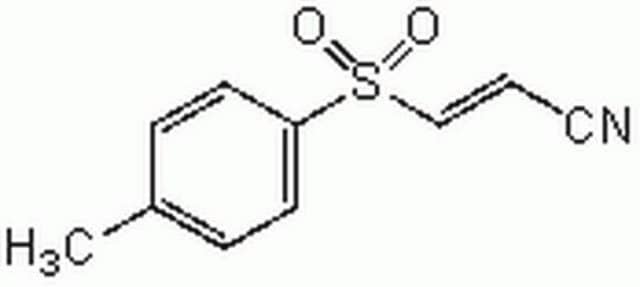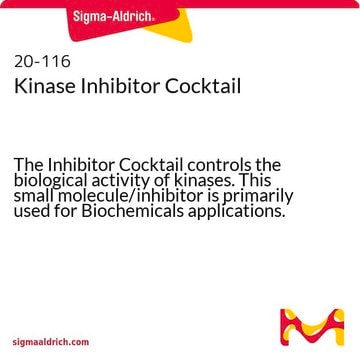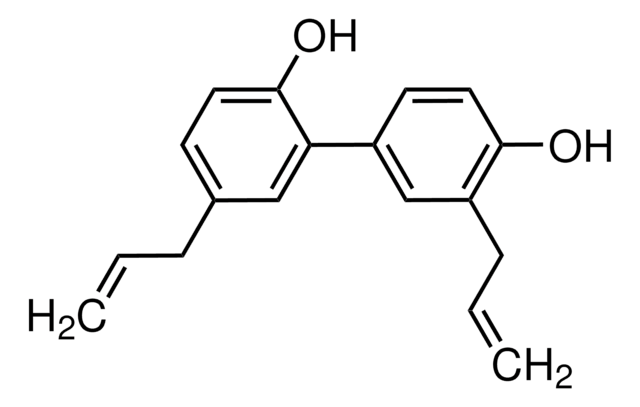D5919
Diacylglycerol Kinase Inhibitor I
solid
Synonym(s):
6-[2-[4-[(4-Fluorophenyl)phenylmethylene]-1-piperidinyl]ethyl]-7-methyl-5H-thiazolo-[3,2-a]-pyrimidin-5-one, R59022
About This Item
Recommended Products
biological source
synthetic (organic)
Quality Level
Assay
≥98% (HPLC)
form
solid
color
pale yellow
solubility
0.1 M HCl: slightly soluble
0.1 M NaOH: slightly soluble
DMSO: soluble
H2O: insoluble
ethanol: soluble
ethyl acetate: soluble
storage temp.
−20°C
SMILES string
CC1=C(CCN2CCC(\CC2)=C(\c3ccccc3)c4ccc(F)cc4)C(=O)N5C=CSC5=N1
InChI
1S/C27H26FN3OS/c1-19-24(26(32)31-17-18-33-27(31)29-19)13-16-30-14-11-22(12-15-30)25(20-5-3-2-4-6-20)21-7-9-23(28)10-8-21/h2-10,17-18H,11-16H2,1H3
InChI key
MFVJXLPANKSLLD-UHFFFAOYSA-N
Looking for similar products? Visit Product Comparison Guide
General description
Application
Biochem/physiol Actions
Storage Class Code
11 - Combustible Solids
WGK
WGK 3
Flash Point(F)
Not applicable
Flash Point(C)
Not applicable
Personal Protective Equipment
Certificates of Analysis (COA)
Search for Certificates of Analysis (COA) by entering the products Lot/Batch Number. Lot and Batch Numbers can be found on a product’s label following the words ‘Lot’ or ‘Batch’.
Already Own This Product?
Find documentation for the products that you have recently purchased in the Document Library.
Our team of scientists has experience in all areas of research including Life Science, Material Science, Chemical Synthesis, Chromatography, Analytical and many others.
Contact Technical Service








